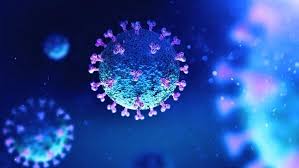The very latest data from the “Centers for Disease Control & Prevention” show the U.S. could be experiencing a summer COVID surge.
Wastewater testing used to determine COVID levels in a community has shown a recent and sharp uptick of the virus in several states – including Alaska, California, Connecticut, Florida, Georgia, Maryland, Montana and New Mexico, and also Emergency Room visits related to COVID, have also increased dramatically spiking almost 13% in one week, with the biggest jumps in Delaware, Iowa, Illinois, Indiana, Nebraska, New Jersey, Rhode Island, Vermont, Virginia and West Virginia, though they still account for only 0.6% of all ER visits nationwide. According to the CDC, the number of COVID infections is growing, OR likely growing in 34 states – including in Alabama.
The other states show a decline or stable infection rates.
Experts point to new dominant ‘FLiRT’ subvariants – such as KP.3 for the apparent summer surge. FLiRT variants that include KP.3, KP.2 and KP.1.1 or any of those starting with KP or JN, combined for more than 47% of all COVID cases in the past two weeks in the U.S. The CDC pointed out that such mutations are to be expected. The positive news is that the FLiRT variants – DO NOT – appear to cause more severe illness than previous variants – and the pattern of infection appears to be the same.
Common symptoms for FLiRT include:
- Sore throat
- Cough
- Fatigue
- Congestion
- Runny nose
- Headache
- Muscle aches
- Fever or chills
- New loss of sense of taste or smell
- Shortness of breath or difficulty breathing
- Nausea or vomiting
- Diarrhea





